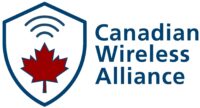RABC-CCCR is Canada’s most trusted advisor on how to best manage and use the radio-frequency spectrum.
Canada’s most trusted advisor on how to best manage and use the radio-frequency spectrum.
Clarity Through Collaboration
The Radio Advisory Board of Canada is the national voice for stakeholders of Canada’s radio-frequency spectrum. Together, our members use their collective voice to bring unbiased, expert technical advice on spectrum regulation to the Government of Canada.
Member Organizations



















Financial Support
Financial Support
Financial Support

The Latest News
The Latest News

ISED Radio Standards Specification, RSS-Gen, issue 6, Feb. 2026 – General requirements for compliance of radio apparatus ISED Radio Standards Specification, RSS-310, issue 6, Feb. 2026 – Licence-exempt radio apparatus: category II equipment
The Department of Innovation, Science and Economic Development Canada is seeking comments on the consultation of the following two documents:
RSS-Gen, issue 6, “General requirements for compliance of radio apparatus”. This standard sets out the general requirements applicable to licensed and licence-exempt radio apparatus.
RSS-310, issue 6, “Licence-exempt radio apparatus: category II equipment”. This standard sets out the requirements for licence-exempt radio apparatus that is exempt from certification.

SRSP-321.2, Issue 1 (Draft) — Technical Requirements for Fixed Line-of-Sight Radio Systems Operating in the Band 21.2–23.6 GHz
The Department of Innovation, Science and Economic Development Canada (ISED) is seeking comments on SRSP-321.2, Issue 1 (Draft) — Technical Requirements for Fixed Line-of-Sight Radio Systems Operating in the Band 21.2–23.6 GHz. SRSP-321.2 establishes the technical requirements applicable to fixed line-of-sight radio systems operating in the 21.2–23.6 GHz band.

Consultation on a Policy, Licensing and Technical Framework for Remotely Piloted Aircraft Systems (RPAS) in the 5030-5091 MHz Band and Certain Bands Used to Provide Commercial Mobile Services
The consultation document is available here: https://ised-isde.canada.ca/site/spectrum-management-telecommunications/en/learn-more/key-documents/consultations/consultation-policy-licensing-and-technical-framework-remotely-piloted-aircraft-systems-rpas-5030
Comments are due no later than 27 February 2026.

Sponsorship Opportunities – CITEL PCC.II – August 30 – September 3, 2027, Ottawa
Canada is planning to host a meeting of the Permanent Consultative Committee II (PCC.II) of the Inter-American Telecommunication Commission (CITEL) from August 30 to September 3, 2027. The meeting would be held at the Rogers Centre in downtown Ottawa and would be the final PCC.II meeting before the World Radiocommunication Conference 2027 (WRC-27). In order to ensure that Canada is able to successfully host, it is critical that we receive expressions of interest from organizations to participate as sponsors as soon as possible.






